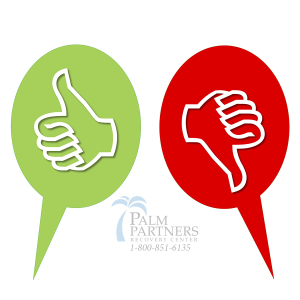By Cheryl Steinberg
You know the old saying: “The squeaky wheel always gets the oil.” Well, if you’re not familiar with this, it means that the person who speaks up (read: complains) gets their way. Think of it in a customer service setting. The unhappy customer who demands to speak with the manager and makes no bones about making their unhappiness known, usually gets the royal treatment: a discount, coupon, whatever it takes to make them happy (hence the “customer’s always right motto in the industry).
Well, as much as we may dislike this behavior in others, they might just be onto something. The bitter pill for most of us to swallow is that those overbearing people often get their way while those of us who believe in the gentle touch approach politely accept a “no” to our requests.
Now. I’m not advocating that you all turn into a bunch of jerks; I still wholeheartedly believe in treating others as I would want to be treated: with respect. But, being respectful and being assertive don’t have to be two separate things. You can, indeed, be both respectful and insistent.
Feisty personalities, although unpleasant, can be extremely effective. So, while you might prefer a meek approach when interacting with others, it’s in your best interest to learn how to access the tougher, more direct, and sometimes more effective approach.
You might usually avoid this strategy because you think that being negative is, well, negative. You may think that aggressive, hostile, or downright mean people are generally jerks and you don’t want to run with that crowd. The good news is that there is such a thing as beneficial negativity and, it has nothing to do with being a jerk.
The Positive Side of Negativity
Negative emotions have other benefits, besides helping you to be more effective; they can also help you focus, and even be hyper-focused, on the situation at hand. So, for example, you’re doing some DIY home repairs that involve tools that could cause you bodily harm if used incorrectly or with a nonchalant, happy-go-lucky attitude. When you’re drilling a hole in the wall, you’re paying close attention to the measurements BUT ALSO you’re focused on the position of your hand, so, you know, you don’t drill a hole in it, too. The negative emotion (anxiety) at play here is what encourages you to drill in exactly the right spot.
There’s good news for those of you who, like me, have tendencies towards depressed moods. Kate Harkness from Queen’s University shows that people prone to depression also tend to notice more details; especially when it comes to facial expressions. These folks, as shown by Harkness’ research, were highly attuned to facial expression, noticing the smallest quiver of a lip or the slightest narrowing of the eyes. This is especially important to cultivating empathy and interacting with others, in general.
Many people make a huge mistake when it comes to understanding negative emotions. They often separate the experience of negative feelings from the expression of negative feelings. Most people accept that being in a bad mood from time to time is a valid, and even inevitable, experience. And yet, when someone expresses frustration, or even *too much* sadness, it is regarded with loathing and detestation. There’s a prevailing idea that it would be easier to live in a society where people are always smiling rather than coexisting with people who are occasionally unhappy.
But we’re not computers; our inner processes shouldn’t be detached from what we show outwardly – on our ‘screens.’ Humans have a wide array of emotions, and for good reason. Being able to express our feelings, including the negative ones, is a big part of the human emotional experience.
Emotional expressions – both positive and negative – exist for a reason. Emotional expressions are an important way in which we communicate with others.
In our active addiction, we become separated from others and ourselves, physically and emotionally. When we get clean and sober, we start to feel our feelings again and this can make our attempts at sobriety a bit of a rocky road. If you need help starting over, please call toll-free 1-800-951-6135. Addiction Specialists are available to talk 24/7.
